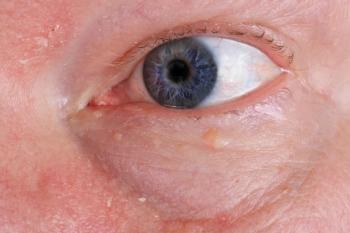
Be vigilant when prescribing oral pharmaceutical agents
Treatment of infectious and inflammatory eye diseases with oral pharmaceutical agents requires an extra degree of attentiveness to the patient's history and their risk of adverse or allergic reactions.
When prescribing medication for recurrent herpes simplex keratitis, take a thorough medical history that includes the patient's chief complaint, history of illness, review of systems-especially kidney function and liver disease-family and social history, current medications, allergies and adverse reactions, and any chance that a patient in her childbearing years might be pregnant, said Dr. Caldwell, of Altoona, PA.
Reactions to systemic medication can have multiple forms. Hypersensitivity may manifest in fever, rash, or photosensitivity, but anaphylaxis should concern optometrists most.
When applicable, check the FDA pregnancy category of medications before you write the prescription. Category A and B medications can safely be prescribed for pregnant patients, while category C and D medications require the clinician to evaluate the benefits against the risks, he said. Category X medications should not be used.
Before prescribing oral agents, clinicians should also identify patients on hemodialysis and work with a primary care physician or internist to adjust the medication based on the patient's creatinine clearance.
Antibiotics are an important component of medical therapy, but watch for cross-reactions, he said. His oral antibiotic paradigm places those in the penicillin category first, followed by macrolides, cephalosporins, quinolones, and sulfonamides. Unless a patient is allergic to penicillin or macrolides, the agents in these categories are generally the safest and can be used in a broad spectrum of patients.
Drugs that appear further down the list require greater attention to detail from the clinician before prescribing. Age, gram-positive versus gram-negative, and other particulars need to be taken into consideration.
Dr. Caldwell also reminded clinicians that once patients have a reaction to one agent in a category, they may have problems with the others as well. The picture is complicated, however. For example, there is a 10% cross-reaction between penicillin and first-generation drugs in the cephalosporin category, such as cephalexin (Keflex, Panixine).
The preferred drug category for patients sensitive to penicillin is macrolide antibiotics, including azithromycin (Zithromax, Pfizer). "It's good for all age groups and does not require renal adjustment," Dr. Caldwell said, but added that optometrists may want to consult a pediatrician if they are uncomfortable treating children and calculating the dosage based on the child's current weight.
Newsletter
Want more insights like this? Subscribe to Optometry Times and get clinical pearls and practice tips delivered straight to your inbox.













































